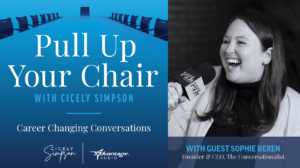I am still receiving a number of questions from business owners about the Paycheck Protection Program.
If you are confused and frustrated with the program, trust me, you are not alone.
The program launched quickly, experienced serious glitches and lending delays, ran out of money, then Congress replenished the money.
And if all of that is not confusing enough, then just wait. Congress is making more changes to the program.
Make no mistake, this is Congress’ signature program created to keep business afloat during the pandemic. Course corrections and fixes are occurring in real time as the severity of the crisis takes its toll on businesses.
In response to complaints from small business owners that there are too rules and conditions for the getting PPP money, Reps. Dean Phillips (D-Minn.) and Chip Roy (R-Texas) introduced H.R. 7010, the Paycheck Protection Program Flexibility Act to eliminate the requirement that businesses spend at least 75 percent of the funds on payroll to have the full loan amount forgiven.
According to Politico, union leaders opposed the bill sending a letter to Capitol Hill stating, “Rather than fixing the inadequate job-retention incentives built into the PPP, the corporate-backed bill simply jettisons the job retention goal altogether…”
Today, the House passed a modified version of H.R. 7010, the Paycheck Protection Program Flexibility Act, by a vote of 417-1. The bill extends the loan forgiveness window from 8 weeks to 24 weeks, a direct response to complaints by business owners that 8 weeks is not sufficient.
In response to labor union opposition, the bill does not eliminate the payroll requirement.
Instead, it provides more flexibility in how business owners can use the loans by changing the 75/25 rule but does not eliminate the rule altogether. Instead of requiring 75 percent of the loan to be used to maintain payroll, this legislation changes the threshold to 60 percent of the loan to go to payroll to still qualify for loan forgiveness. Likewise, the non-payroll portion of the loan amount increases from the current 25% up to 40%.
The bill establishes a minimum maturity of five years for a paycheck protection loan with a remaining balance after forgiveness occurs.
Additionally, the bill revises the deferral period for paycheck protection loans, allowing recipients to defer payments until they receive compensation for forgiven amounts. Recipients who do not apply for forgiveness shall have 10 months from the program’s expiration to begin making payments.
The bill also eliminates a provision that makes a paycheck protection loan recipient who has such indebtedness forgiven ineligible to defer payroll tax payments.
House Majority Leader Steny Hoyer (D-MD) said he hopes the Senate will take up the House passed bill instead of drafting their own version.
The Senate is expected to work on this issue when they return next week, but it is unclear if they will move forward with the House version or insist on changes.
The near unanimous vote in the House gives political cover for the Senate to swiftly move the House-passed bill, if they choose.
Who is Receiving PPP Funds?
Another frustration plaguing the Paycheck Protection Program is the numerous new reports that large business, including public companies received funding from the program intended to keep small businesses open.
News reports of sports teams, large companies, and others getting the loan is just absurd. For example:
- The Los Angeles received $4.6 million. (I love the Lakers, but this is crazy).
- Harvard University (who has a $40 billion endowment) received $8.6 million but has returned the money.
- 200 publicly traded companies that have disclosed receiving a total of more than $750 million in bailout loans, according to the New York Times.
In an effort to bring more transparency to the loan process, the House also voted on required the Small Business Administration to disclose the recipients of PPP and Economic Injury Disaster loans.
Despite securing a simple majority vote of 269-147 , the bill did not reach the two-thirds super majority needed to pass via the fast-track process under which it was considered.
SBA has responded to calls for more information about loan recipients by saying the agency is too consumed in their efforts to get money out the door to release that information.
SBA was non-committal stating that list of the recipients might be made public at some time in the near future.
Lawmakers will continue their call to release the PPP list. Chairman Clyburn who leads the House Select Subcommittee on the Coronavirus condemned the lack of transparency from the Administration.


